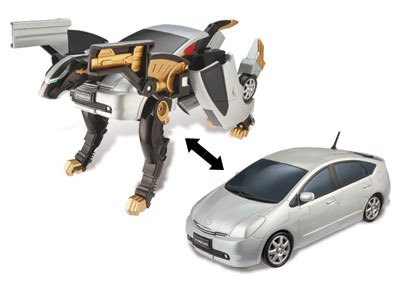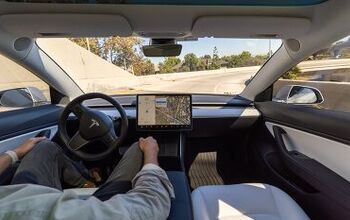Toyota July Sales Down 11 Percent, Honda Down 17 Percent
Toyota‘s Yaris and Corolla models did not receive much in the way of a sales boost from the government’s cash for clunkers program, recording 36 percent and 14 percent declines respectively. Nor did Honda‘s Fit, which slid 28 percent to 8,876. Prius, however, did. America’s hybrid grew its sales by 30 percent compared to last July. It also creamed Honda’s competing Insight, 19,173 to 2,295. Prius alone now sells as well as Buick, Cadillac and Saturn combined. Hail to the king, baby.
But Toyota needs to nurse that feel-good, because it doesn’t make up for the fact that the rest of its car results are still in shambles. Scion, in particular, could have won big from Cash for Clunkers, but Scions sell on individuality, not value. As a result, xB is down 44 percent to 2,838 units, the tC is down 60 percent to 1,939 and the xD is down three percent to 1,976. Camry is off about 20 percent, Venza is launching slowly (like almost all large CUVs) at 5,780 units and Avalon is down to just under 2,000 units.
RAV-4 has been leading Toyota’s trucks-n-utes, and was up 32.5 percent to 15,912 units. But in July the biggest story was probably the Highlander, which lept 39 percent to 9,40. Sienna survived with a 19 point drop, but everything else was off by between 26 percent (Land Cruiser) and 75 percent (FJ Cruiser).
Civic was the only Honda car to see a clunker-led rally, up 3.1 percent to 30,037. Accord is down 28 percent to 29,974. On the “truck” front, Honda’s CR-V continues to be the only reliable performer, up ten percent to 19,151. From there things go from bad (Pilot: 6,340, -15.3 percent) to worse (Odyssey: 6,785, -48 percent).
Lexus cars are in freefall, with even the usually-solid ES and IS dropping by 21 and 15 percent respectively. LS and GS barely register at 874 and 551 units each. RX is up ten percent to 7,811 units, but GX (587) and LX (215) are almost completely off the radar.
Acura is hardly any better off. TL dropped by a mere 16.5 percent, but TSX fell over 35 percent to just 2,232 units. RL inspired 131 sales. MDX fell “only” 29 percent to 2,471, but RDX is dead on its feet with only 519 sales.
More by Edward Niedermeyer
Latest Car Reviews
Read moreLatest Product Reviews
Read moreRecent Comments
- Kjhkjlhkjhkljh kljhjkhjklhkjh A prelude is a bad idea. There is already Acura with all the weird sport trims. This will not make back it's R&D money.
- Analoggrotto I don't see a red car here, how blazing stupid are you people?
- Redapple2 Love the wheels
- Redapple2 Good luck to them. They used to make great cars. 510. 240Z, Sentra SE-R. Maxima. Frontier.
- Joe65688619 Under Ghosn they went through the same short-term bottom-line thinking that GM did in the 80s/90s, and they have not recovered say, to their heyday in the 50s and 60s in terms of market share and innovation. Poor design decisions (a CVT in their front-wheel drive "4-Door Sports Car", model overlap in a poorly performing segment (they never needed the Altima AND the Maxima...what they needed was one vehicle with different drivetrain, including hybrid, to compete with the Accord/Camry, and decontenting their vehicles: My 2012 QX56 (I know, not a Nissan, but the same holds for the Armada) had power rear windows in the cargo area that could vent, a glass hatch on the back door that could be opened separate from the whole liftgate (in such a tall vehicle, kinda essential if you have it in a garage and want to load the trunk without having to open the garage door to make room for the lift gate), a nice driver's side folding armrest, and a few other quality-of-life details absent from my 2018 QX80. In a competitive market this attention to detai is can be the differentiator that sell cars. Now they are caught in the middle of the market, competing more with Hyundai and Kia and selling discounted vehicles near the same price points, but losing money on them. They invested also invested a lot in niche platforms. The Leaf was one of the first full EVs, but never really evolved. They misjudged the market - luxury EVs are selling, small budget models not so much. Variable compression engines offering little in terms of real-world power or tech, let a lot of complexity that is leading to higher failure rates. Aside from the Z and GT-R (low volume models), not much forced induction (whether your a fan or not, look at what Honda did with the CR-V and Acura RDX - same chassis, slap a turbo on it, make it nicer inside, and now you can sell it as a semi-premium brand with higher markup). That said, I do believe they retain the technical and engineering capability to do far better. About time management realized they need to make smarter investments and understand their markets better.


































Comments
Join the conversation
I don't think the Accord is bloated per se, not when you consider that it's within an inch or so of most of the rest of the class. If you want the more svelte, feature-reduced Accord of yesteryear, Honda will happily sell you a Civic. Honda has simply moved the Accord up to a size class it never had an entrant in during previous years. I don't see this is a problem, unless we're hung up on the Accord nameplate. If it bothers you that it's gotten large, pry the nameplate off a Caprice and stick it on the bacl
Looks from these numbers that Acura is in trouble. I understand the 2010 MDX introduction has been delayed for several months because U.S. parts suppliers have been affected by the bankruptcy of GM. Seems like they share the same suppliers. So if Acura isn't getting a bounce from the C4C program...where will it be in October?